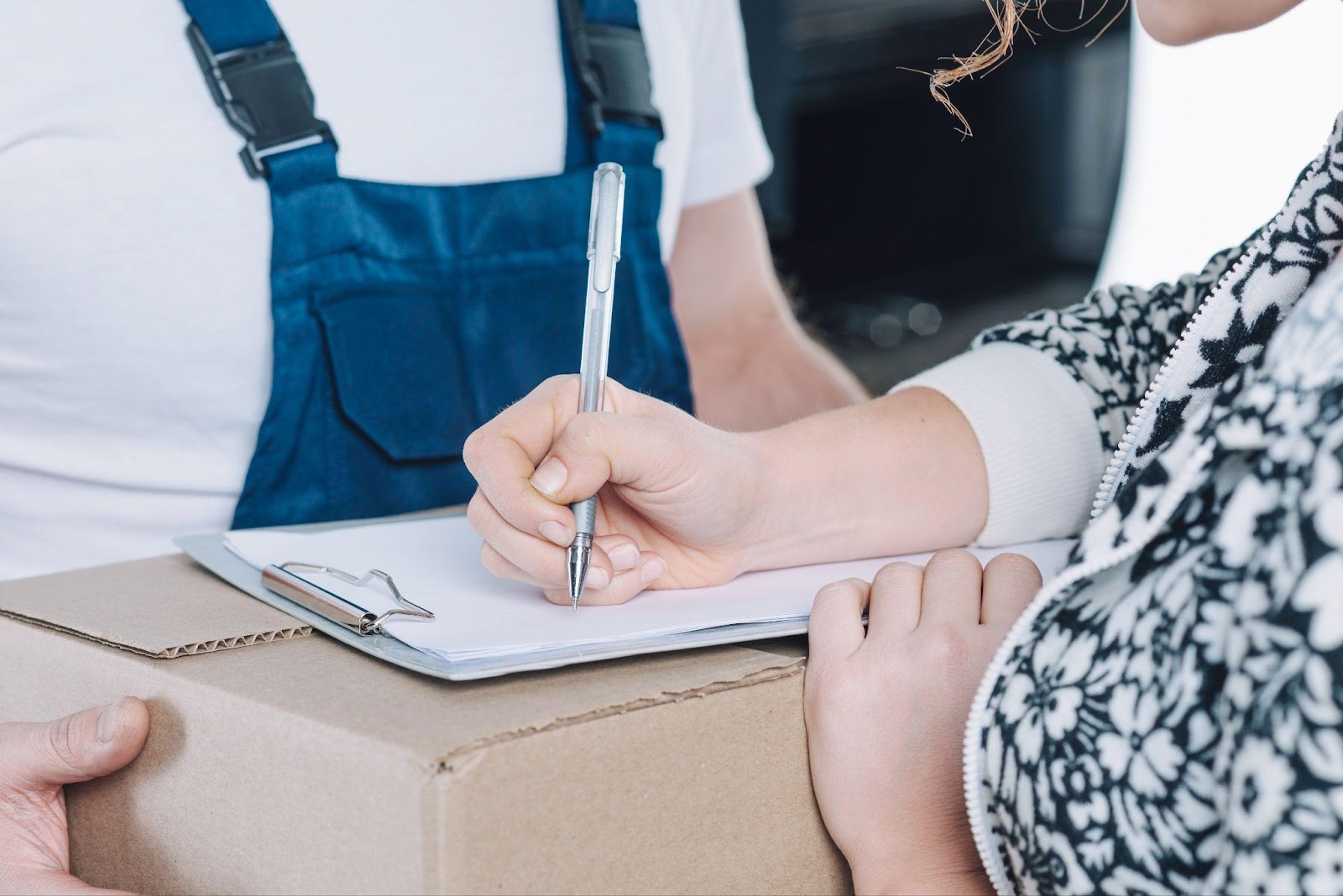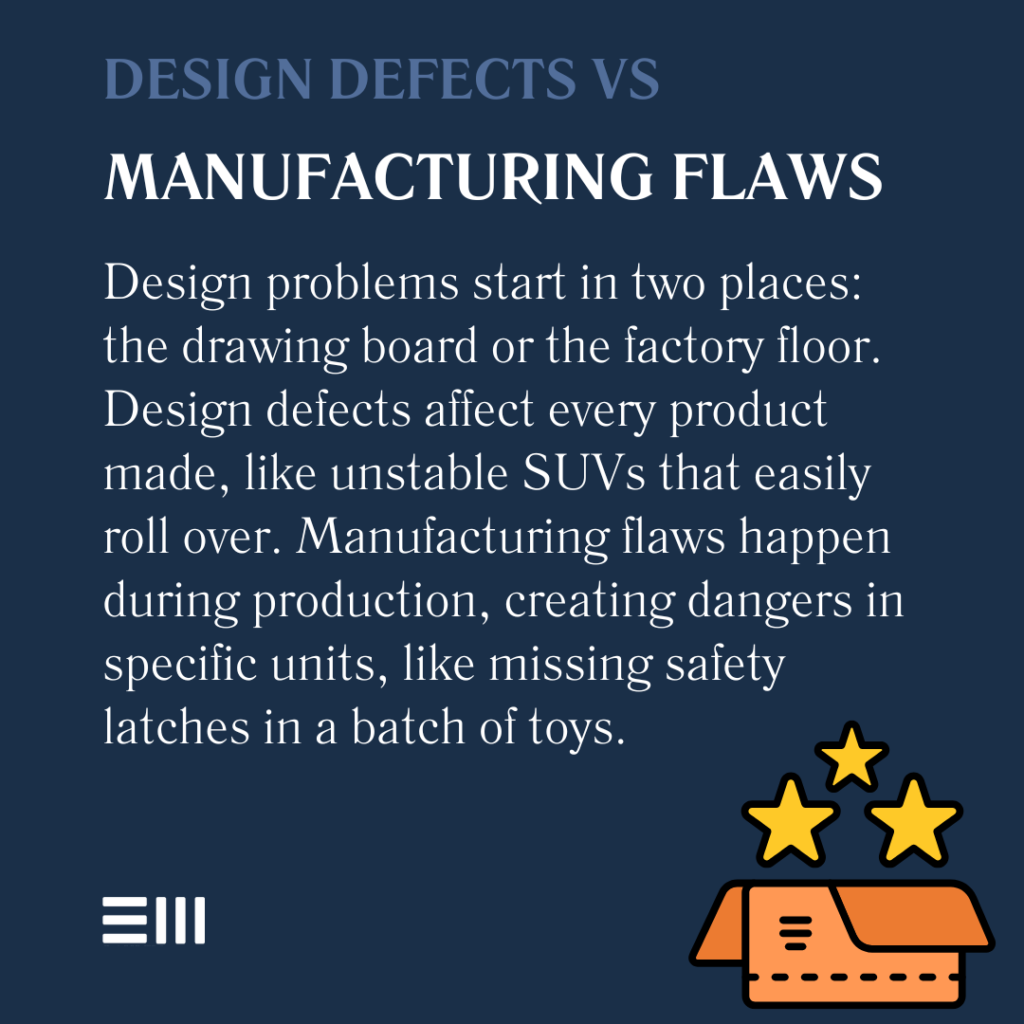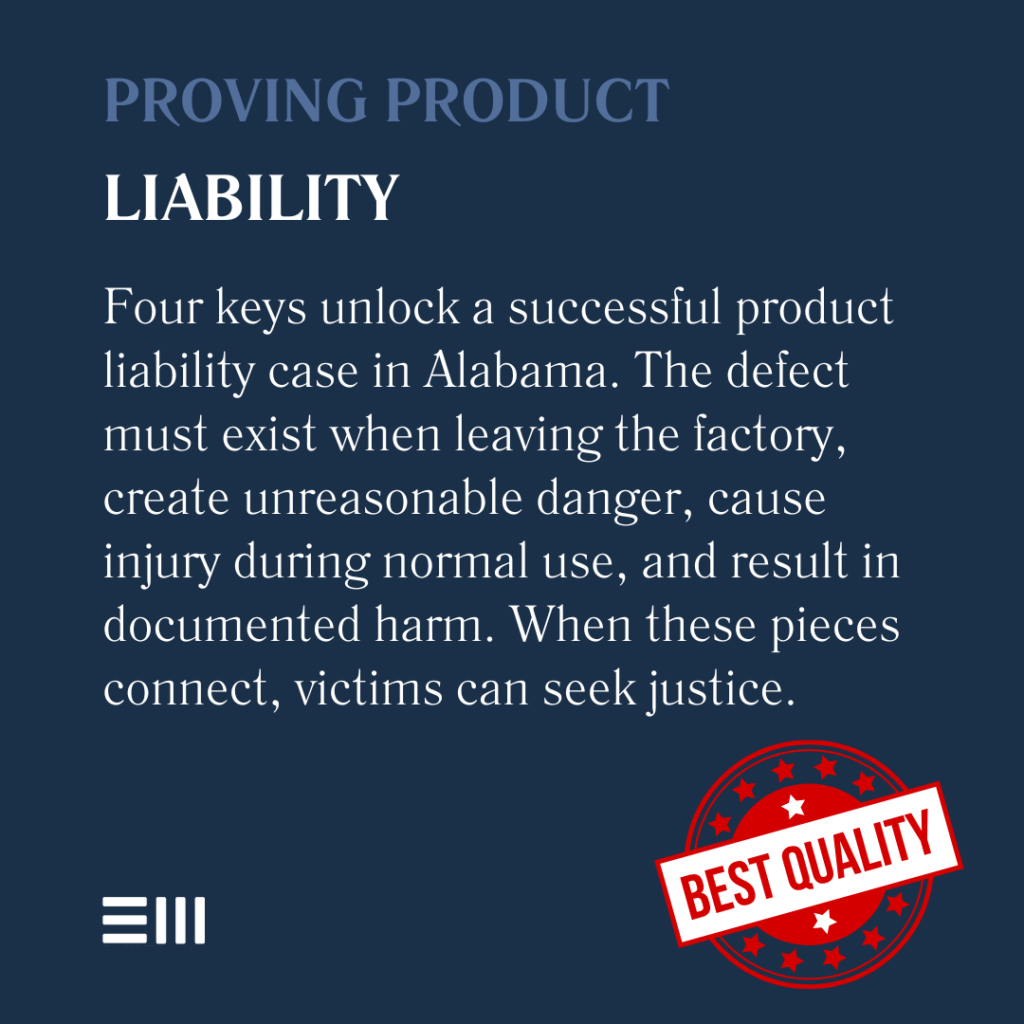
When Sarah picked up her new coffee maker that morning, she had no way of knowing its faulty wiring would spark a fire that would destroy her kitchen.
Across town, Mike’s teenage son lay in a hospital bed after their family SUV rolled over due to an unstable design—a defect affecting thousands of the same model. These aren’t isolated incidents.
From household appliances to children’s toys, from medical devices to vehicle components, dangerous products find their way into American homes every day, transforming routine moments into life-altering tragedies.
Understanding Product Liability Claims in Alabama
Manufacturing defects and design flaws represent two distinct paths to product liability claims. While both can lead to serious injuries, their underlying causes differ significantly.
Alabama’s product liability laws provide specific frameworks for handling these cases, ensuring manufacturers maintain high safety standards while protecting consumer rights.
Design Defects
Design defects occur when a product’s fundamental blueprint is inherently dangerous, affecting every unit manufactured.
These flaws exist before production begins and impact the entire product line. Identifying design defects often requires extensive engineering analysis and expert testimony to demonstrate safer alternative designs were available.
Common examples of design defects include:
- Vehicles with a high center of gravity prone to rollovers;
- Children’s toys with small parts that pose choking hazards;
- Electronics with inadequate ventilation leading to fire risks;
- Medical devices that can cause unintended complications;
- Safety equipment that fails to provide adequate protection;
- Power tools lacking proper safety guards;
- Furniture pieces with unstable designs; and
- Chemical products without adequate child-resistant packaging.
Design defects often reveal systemic problems in product development processes. Understanding these issues helps manufacturers implement better safety protocols and protect future consumers from harm.
Manufacturing Flaws
Unlike design defects, manufacturing flaws occur during the production process, affecting specific units rather than the entire product line.
These deviations from intended specifications can create dangerous conditions for unsuspecting consumers. Manufacturing flaws often result from quality control failures, material deficiencies, or assembly errors.
Examples of manufacturing flaws include:
- Contaminated medications or food products;
- Missing safety components in vehicles;
- Improperly assembled electronics;
- Weak or compromised materials in safety equipment;
- Incorrectly labeled products with missing warnings;
- Structural weaknesses in building materials;
- Foreign objects in packaged foods;
- Improperly sterilized medical equipment;
- Misaligned mechanical components; and
- Incorrect material mixtures in pharmaceuticals.
Understanding manufacturing flaws helps companies improve quality control processes and maintain consistent safety standards across production runs.

Proving Product Liability in Alabama Courts
The path to establishing product liability requires demonstrating specific elements under Alabama law.
Understanding these requirements helps build stronger cases and protect consumer rights. Alabama courts consider multiple factors when evaluating product liability claims, including industry standards, reasonable consumer expectations, and manufacturer conduct.
Key elements in proving product liability include:
- Establishing that the product was defective when it left the manufacturer;
- Demonstrating that the defect made the product unreasonably dangerous;
- Proving that the defect caused injury or damage;
- Showing that the product was being used as intended;
- Documenting all related damages and losses;
- Establishing the connection between the defect and the injury;
- Demonstrating the manufacturer’s knowledge or duty to know;
- Proving the defect’s existence through expert testimony;
- Showing compliance with proper product usage instructions; and
- Documenting the chain of custody for the defective product.
Successfully proving these elements requires thorough documentation, expert analysis, and strategic legal representation.

Industry-Specific Considerations
Different industries face unique challenges regarding product liability. Understanding these specific concerns helps both manufacturers and consumers navigate potential risks effectively.
Vehicle manufacturers must address multiple safety considerations:
- Structural integrity during collisions;
- Airbag deployment systems;
- Brake system reliability;
- Fuel system safety;
- Electronic control systems; and
- Safety restraint effectiveness.
Electronic device manufacturers face particular challenges:
- Battery safety and thermal management;
- Electrical shock prevention;
- Fire hazard mitigation;
- Software safety features;
- Environmental protection standards; and
- User interface safety.
Healthcare products require exceptional attention to safety:
- Material biocompatibility;
- Sterilization standards;
- Performance reliability;
- Risk management systems;
- User safety features; and
- Emergency backup systems.
These industry-specific safety requirements demonstrate the complex web of regulations and standards that manufacturers must navigate to ensure consumer protection and minimize liability risks.
Your Rights as an Alabama Consumer
Alabama law provides specific protections for consumers affected by defective products. These rights empower individuals to seek compensation for injuries and losses caused by dangerous goods. Understanding your rights helps ensure appropriate action following a product-related injury.
Consumer rights include:
- The right to compensation for medical expenses;
- Coverage for lost wages and earning capacity;
- Compensation for pain and suffering;
- Recovery of property damage costs;
- Punitive damages in cases of gross negligence;
- Access to product safety information;
- Right to legal representation;
- Protection from retaliatory actions;
- Access to expert testimony; and
- Right to preserve evidence.
Understanding these rights helps consumers make informed decisions about their legal options and ensures proper protection under Alabama law.
Common Questions About Product Liability Claims in Alabama
Product liability cases often raise important questions about consumer rights and legal processes. Here are answers to frequently asked concerns about design defects and manufacturing flaws.
How Long Do I Have to File a Product Liability Claim in Alabama?
In Alabama, you generally have two years from the date of injury to file a product liability claim. However, certain exceptions may apply, particularly in cases where the defect wasn’t immediately apparent or involved long-term exposure issues.
What Compensation Can I Recover in a Product Liability Case?
Product liability claims may provide compensation for medical expenses, lost wages, pain and suffering, and property damage. In cases of extreme negligence, punitive damages might also be available to punish particularly egregious conduct.
Do I Need to Keep the Defective Product?
Preserving the defective product is crucial for your case. The product serves as primary evidence of the defect and may be necessary for expert analysis and courtroom demonstration. Proper storage and documentation are essential.
What if I Was Partially at Fault for My Injury?
Alabama follows contributory negligence rules, which can affect your ability to recover damages. However, an experienced attorney can help evaluate your case and identify the best legal strategy to protect your rights.
How Can I Prove a Product Was Defective?
Proving product defects typically requires expert testimony, documentation of the injury, and evidence of the product’s dangerous condition. Professional legal guidance helps gather and present this evidence effectively in court.
What if Multiple Parties Are Responsible?
Product liability cases often involve multiple responsible parties, including manufacturers, distributors, and retailers. An experienced attorney can help identify all potentially liable parties and pursue appropriate compensation.
Take Action to Protect Your Rights
Each day that you wait to address a product liability injury impacts your ability to recover compensation.
Our experienced team understands the complexities of design defect and manufacturing flaw cases in Alabama. We work diligently to protect consumer rights and hold manufacturers accountable for dangerous products.
Contact our office today for a confidential consultation about your product liability case. Let us help you understand your options and fight for the compensation you deserve.
Can't find what you're looking for? Search our site below.










